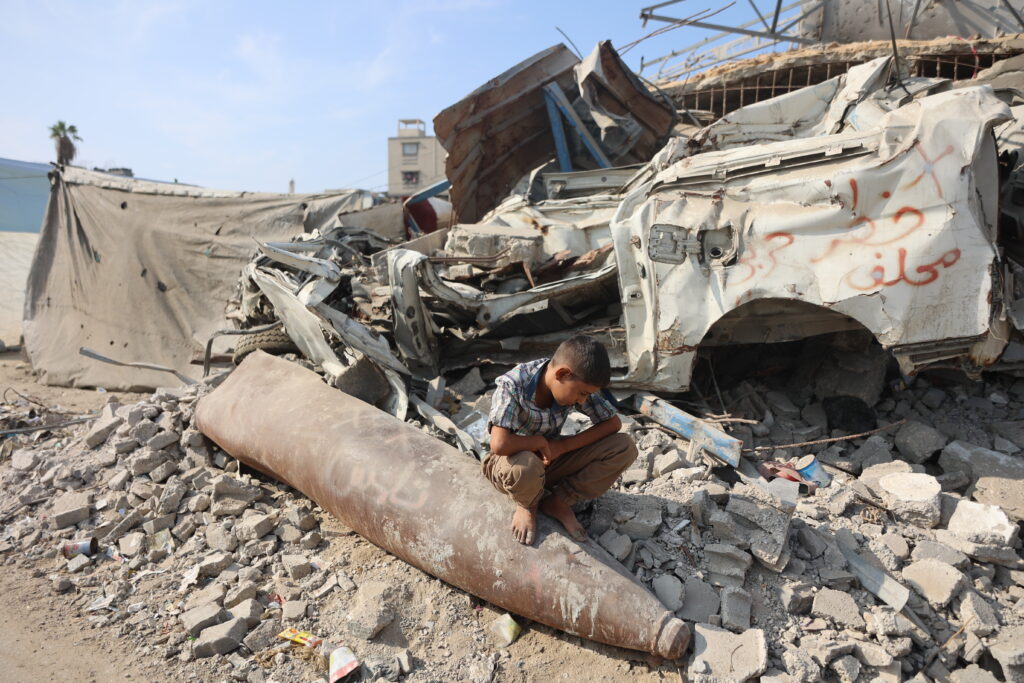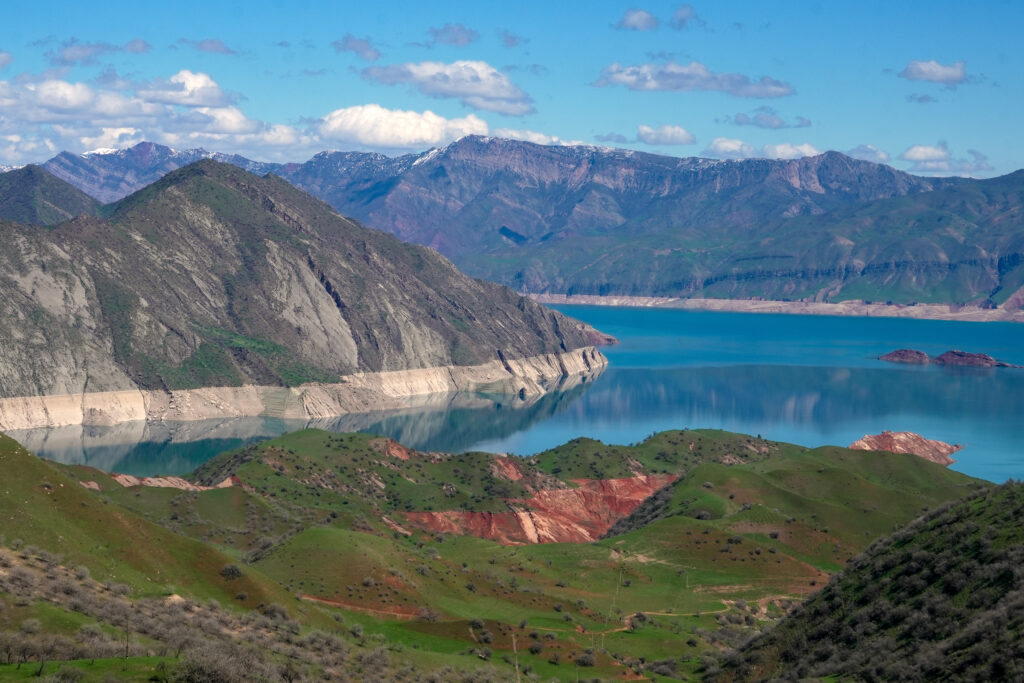AFP Asia Business
UN Security Council to vote Monday on Trump Gaza plan
The UN Security Council will vote Monday on a resolution endorsing US President Donald Trump’s Gaza peace plan, diplomats said.Last week the Americans officially launched negotiations within the 15-member Security Council on a text that would follow up on a ceasefire in the two-year war between Israel and Hamas and endorse Trump’s plan.A draft of the resolution seen Thursday by AFP “welcomes the establishment of the Board of Peace,” a transitional governing body for Gaza — that Trump would theoretically chair — with a mandate running until the end of 2027.It would authorize member states to form a “temporary International Stabilization Force (ISF)” that would work with Israel and Egypt and newly trained Palestinian police to help secure border areas and demilitarize the Gaza Strip.Unlike previous drafts, the latest mentions a possible future Palestinian state.The United States and several Arab and Muslim-majority nations including Egypt, Saudi Arabia and Turkey called Friday for the UN Security Council to quickly adopt the resolution.”The United States, Qatar, Egypt, the United Arab Emirates, the Kingdom of Saudi Arabia, Indonesia, Pakistan, Jordan, and Türkiye express our joint support for the Security Council Resolution currently under consideration,” the countries said in a joint statement, adding they were seeking the measure’s “swift adoption.”Friday’s joint statement comes as Russia circulated a competing draft resolution to Council members that does not authorize the creation of a board of peace or the immediate deployment of an international force in Gaza, according to the text seen Friday by AFP.The Russian version welcomes “the initiative that led to the ceasefire” but does not name Trump.It also only calls on the UN secretary-general to submit a report that addresses the possibilities of deploying an international stabilization force in war-ravaged Gaza.The United States has called the ceasefire “fragile,” and warned Friday of the risks of not adopting its draft.”Any refusal to back this resolution is a vote either for the continued reign of Hamas terrorists or for the return to war with Israel, condemning the region and its people to perpetual conflict,” the US ambassador to the United Nations, Mike Waltz, wrote in The Washington Post.”Every departure from this path, be it by those who wish to play political games or to relitigate the past, will come with a real human cost.”While it seemed until now that Council members supported principles of the peace plan, diplomatic sources noted there were questions about the US text, particularly regarding the absence of a monitoring mechanism by the Council, the role of the Palestinian Authority, and details of the ISF’s mandate.The Russian UN mission said in a statement that its alternative proposal differed by recognizing the principle of a “two-State solution for the Israeli-Palestinian settlement.””Unfortunately, these provisions were not given due regard in the US draft,” it said.
Iran’s first woman orchestra conductor inspires
When Paniz Faryoussefi mounts the podium and reaches for her baton, she represents more than just the hope of a thrilling orchestral performance.The eyes turned towards her in Tehran’s renowned Vahdat Hall include those of many young women musicians inspired by her taking her place as Iran’s first woman philharmonic conductor.Women’s professional and cultural lives are still heavily restricted in the conservative Islamic republic, particularly in terms of public performance before mixed-gender audiences.Women, for example are not allowed to sing solo in front of men.But, as exemplified by 42-year-old Faryoussefi, they can now conduct an orchestra.”When I stepped onto the stage, I noticed that all eyes were on a woman conducting the orchestra, and I felt an immense responsibility,” she told AFP after the performance.- Close eye on dissent -Widespread street protests shook Iran for several months following the death in custody in 2022 of a young woman arrested for violating the country’s strict dress code for women.In the wake of the disturbances, the government has relaxed certain restrictions and young women have become more prominent in some areas of social and cultural life. And since a 12-day war with Israel earlier this year, Iranians have been pushing social boundaries further still.Analysts say the authorities have shown greater tolerance, while keeping as close an eye as ever for any signals of political dissent.Several women in the audience at the concert did not wear their scarves. The conductor wore hers, covering her hair as the law demands, but her arrival at the podium was in itself a sign of greater openness. The crowd shared Faryoussefi’s enthusiasm, particularly the young women, who seemed aware that they were witnessing a historic moment.In some Iranian cities, women musicians are not allowed to perform on stage, and even in the capital Tehran they cannot raise their voices in song in public. Faryoussefi was born into an artistic family and her mother dreamed of her becoming a cheffe d’orchestre — but Iranian performing arts academies do not teach conducting.She briefly attended classes in Armenia before returning to build a trailblazing career. “Young women need to persevere and follow their dreams,” she said.At the podium, she led the 50-strong orchestra through works by Austria’s Franz Schubert, Finland’s Jean Sibelius and the Soviet-Armenian composer Aram Khachaturian.”I hope this marks a new era for young Iranian women and that they will understand that… they should not be afraid,” she said. “It is the only gateway to emancipation.”A friend saw a little girl in the audience mimicking my movements. He thought a dream was already taking root in her, that she was thinking she too could one day achieve the same thing.”The concerts took place over two days and attracted large crowds.Said Shourabi, 53, works in metal fabrication and wasn’t a big concertgoer until his daughter, who was out of town, bought him the tickets and insisted he go along. “In Iran,” he said, “women have always been held back and haven’t been able to fully express their talents, even if I’m sure they’re just as capable as men.” Hairdresser Fariba Aghai, 44, was delighted to see a woman take up the baton at the orchestra, lamenting that women singers still can’t perform at concerts or publish their own songs.”They shouldn’t have to sell themselves short and should know that they’re capable of anything,” she said.
Saudi prince, eyeing defence pledge, to meet Trump after long US absence
Crown Prince Mohammed bin Salman will press for security guarantees while US President Donald Trump will urge him to normalise ties with Israel when the de facto Saudi ruler breaks a seven-year absence from Washington this week.Saudi Arabia is unlikely to agree to normalisation at this stage, with Prince Mohammed’s priority set for firmer US security guarantees after Israeli strikes in September on Qatar, an iron-clad US ally, rattled the wealthy Gulf region.”For the Saudis, the goal of this trip… appears to be threefold: to elevate, consolidate, and facilitate security and defence cooperation,” wrote Aziz Alghashian from the Washington-based think tank Arab Gulf States Institute. The 40-year-old heir to the throne is making his first US visit since the 2018 murder of Washington Post columnist Jamal Khashoggi by Saudi agents prompted worldwide outrage and briefly upended ties.Prince Mohammed is friendly with Trump, a relationship that was burnished by a lavish welcome and $600 billion in investment pledges when Trump visited the world’s biggest oil exporter in May.The visit will last three days starting Monday, with the crown prince to meet Trump on Tuesday, a source close to the government had told AFP, as the Saudi ruler’s trips are rarely announced in advance.A US-Saudi investment forum spotlighting energy and artificial intelligence will take place in Washington during the prince’s visit, the event’s website says.- ‘We keep being asked’ -Ahead of his arrival, Trump has been vocal about Saudi Arabia, a Middle East heavyweight, recognising Israel by joining the Abraham Accords — a grand prize for the White House that Riyadh seems unlikely to bestow in the aftermath of the Israel-Hamas war.”We have a lot of people joining the Abraham Accords and hopefully we are going to get Saudi Arabia very soon,” Trump told a business forum in Miami. Tentative moves towards normalisation, in return for security and energy guarantees, were put on hold after the Hamas attacks on Israel in October 2023 triggered Israel’s devastating war in Gaza.Riyadh appears in no mood to acquiesce in the current climate, especially as it leads an international push for a Palestinian state — its oft-stated condition for normalising ties.”A Palestinian state is a prerequisite for regional integration,” Manal Radwan, who heads the negotiating team at the Saudi foreign affairs ministry, underlined this month at the Manama Dialogue in Bahrain.”We have said it many times, and I don’t think that we have received a full understanding, because we keep being asked this question,” she added.Instead, the Saudi ruler will seek better US security guarantees. Doha secured an executive order that Trump signed, vowing to defend Qatar against attacks after Israel’s attack — a deal that experts say other Gulf countries are eager to snatch.As well as advanced air and missile defence systems, Riyadh is reportedly seeking to buy F-35 fighter jets, currently only owned by Israel in the Middle East.It will also push hard for access to the high-tech chips it needs to fuel its artificial intelligence ambitions, experts said.- Bromance -As Riyadh embarks on ambitious tourist and entertainment projects to diversify its oil-reliant economy, it has sought to de-escalate regional tensions — including with former arch-rival Iran.Radwan said the kingdom would continue to offer its “good offices” on the Iranian issue, adding that “direct negotiation between Iran and the United States is essential to resolve the nuclear file”.”At stake is whether the Crown Prince can formalise a durable US–Saudi framework that delivers credible deterrence against Iran and underwrites Vision 2030,” said Andreas Krieg, a security expert at King’s College London, referring to the oil-rich kingdom’s ambitious economic diversification plan.”In return, Washington will press for tighter guardrails on sensitive China links and tangible movement tied to an eventual Israel track and a plausible political horizon for Palestinians,” he told AFP.In May, at the start of Trump’s first foreign tour since returning to office, his “bromance” with Prince Mohammed was on full display, with the president warmly complimenting his host.Their bonhomie has delivered results, particularly with regards to Syria, whose long-time president was toppled last December after 14 years of civil war.Trump said it was the prince who convinced him to drop sanctions on Syria after the fall of Bashar al-Assad, and to meet the country’s jihadist-turned-president in Riyadh.Six months later, Trump welcomed Syrian President Ahmed al-Sharaa to the White House.
Water shortage pushes Kyrgyzstan, Tajikistan into energy crisis
Kyrgyzstan and Tajikistan are facing an energy crisis as water levels have plummeted at the reservoirs powering their largests hydropower stations, officials said this week. The two landlocked Central Asian countries are heavily reliant on hydropower. Both use massive Soviet-built hydropower plants for their domestic electricity output.The water level in the reservoir connected to Tajikistan’s Nurek power plant has dropped by 2.47 metres (8.1 feet) over the last year, the state utility firm told AFP on Friday. The Tajik Ministry of Energy and Water Resources had said on Thursday the situation there was alarming.In neighbouring Kyrgyzstan, the reservoir feeding Toktogul hydroelectric plant has lost two billion cubic metres (70.6 billion cubic feet) — around 20 percent — over the past year, President Sadyr Japarov said earlier this week. Restaurants in Kyrgyzstan have been ordered since Thursday to close at 10:00 pm and public establishments must switch off lights by 6:00 pm to save power. Tajik authorities said officials who failed to stop an “irrational” use of electricity would be fired.Since the collapse of the Soviet Union, both countries have experienced periodic power cuts, especially in winter, despite attempts to renovate ailing energy infrastructure.Populations in both former Soviet republics have risen significantly in recent decades, putting pressure on utility networks.Kyrgyzstan and Tajikistan are home to Central Asia’s main water reserves, sharing approximately 20,000 glaciers in their mountain ranges. But droughts and rising temperatures are hindering the regeneration of the glaciers. To address the chronic lack of energy, both countries are building new power plants which are intended to better utilise and store water. When completed, the new facilities — Kambar-Ata in Kyrgyzstan and Rogun in Tajikistan — may even potentially allow power to be exported to neighbouring countries, Afghanistan and Pakistan.




